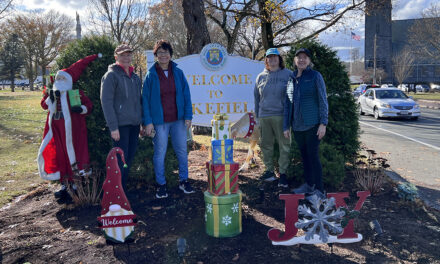The following is an article published by CADCA, the Community Anti-Drug Coalitions of America.
The small, suburban town of Wakefield, just north of Boston has a surging heroin problem, but residents seem to be reluctant to face the facts. That’s why the newly-formed Wakefield Unified Prevention Coalition (Wake Up) stepped in, trying to stamp out the stigma around substance abuse.
“People don’t think of heroin being a suburban problem. They don’t want to talk about it,” explained Catherine Dhingra, director of Wake Up, which formed in 2013. “In the Northeast, heroin is a huge issue. Suburban Boston is really Ground Zero for the heroin crisis.”
Dhingra said that it’s not just young adults and youth suffering from heroin addiction middle aged people are also dying from overdoses. In order to shine a light on this issue, Wake Up is focusing on prevention efforts, building relationships with schools, law enforcement and medical professionals.
A big part of their efforts involve educating parents. To that end, Wake Up held a workshop earlier this year to explore the link between substance abuse with mental health. During their event, called “Parent University,” more than 150 parents learned about substance abuse and anxiety, “gaining skills and adding things to their toolbox to better educate kids in these high risk times.
“A lot of this information is new to parents,” Dhingra said, adding that parents were given a “comprehensive understanding of ‘What’s in Your Medicine Cabinet?’ and social hosting policies. Taking away the keys isn’t enough. Having kids drink in the basement is not OK.”
Wake Up also hosted a community forum on opiate overdoses. Panelists included prevention experts, a former addict, a representative from the local Drug Court, an addiction counselor and an emergency room director.
In addition, the coalition provides bystander Narcan training, so any civilian can revive someone having an overdose. Resource cards were given to police to share with families. They are also working with doctors and dentists, teaching them about safe prescribing; encouraging pharmacies to hold take-backs and working with school coaches around sports injuries and education regarding prescription drug abuse.
Besides combating the heroin issue, Wake Up has also tried to limit the potential effects of medical marijuana dispensaries in their community. Wakefield was the first community to attempt to ban medical marijuana facilities. They were unsuccessful, but a zoning law was passed to limit the dispensary to just one lot that is already being occupied.
Part of the coalition’s success is due to young people in the community who are active in the coalition. Recently, Wake Up’s Youth Action Team did a lot of successful work addressing hot spots in the community that are unsafe and prone to illegal teen activity. Students at a newly opened middle school not only embraced the Above the Influence campaign but did a project called Photo Voice, using cameras to answer two questions: “What in Wakefield helps me live a healthy life?” and “What in Wakefield makes it hard for me to make healthy choices?”
Through their project, they identified places around town that served as havens for underage drinking and smoking. Photos, taken by students themselves, show pill bottles, glassine envelopes and empty liquor bottles strewn around playgrounds.
“There’s a lack of places for teens to hang out,” Dhingra explained.
Students also presented these findings to a school committee and changes will likely be made to the “big party spot next to the park,” with improvements to lighting and changes to the physical design to repel the illicit activity.
Other initiatives that Wake Up is working on is changing how youth access mental health. There is already a mental health task force and a suicide prevention coalition.
Dhingra noted that data guides their coalition work.
“These [activities] wouldn’t have happened without the Wakefield Youth Risk Behavior Survey,” Dhingra said. “It showed not only substance abuse issues but high numbers of mental health and suicide ideation. How we see changes across the community impacts the greatest number of people.”
Dhingra said that the key to Wake Up’s success is building relationships.
“We have been extremely fortunate to have such collaboration with schools, police and town administrators,” she said. “I am impressed with how much people are committed to volunteering their time and making real change happen.”




